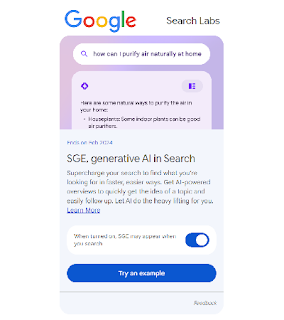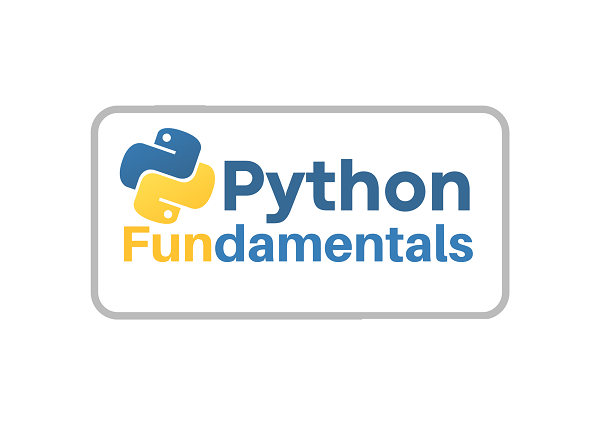How to Code Without Technical Background: Simple and Easy Tips
Have you always wanted to learn to code but don't have a technical background?
This blog post provides tips for those who want to learn how to code but don't have any technical background. It discusses the importance of setting clear goals, starting small, and practicing regularly, among other things. By following these tips, readers can start their journey to learning to code today.
Have you ever felt
intimidated by the idea of coding, thinking it's only for people with a
technical background? If you have, you're not alone. Many people believe that
coding is a difficult skill that requires a deep technical understanding, but
the truth is, anyone can learn to code with the right approach and mindset.
In this blog, we'll
explore how to code without a technical background. We'll cover everything from
the basics of programming to tools and resources that can help you get started
on your coding journey. Whether you're interested in developing apps, creating
websites, or exploring data science, this blog will give you a solid foundation
to start from.
Getting Started with
Programming
Before diving into the
specifics of coding, it's important to understand what programming is and how
it works. At its core, programming is the process of creating instructions that
a computer can execute to perform a specific task. These instructions are
written in a programming language, which is a set of rules and symbols that
computers can understand.
If you're completely new
to programming, there are several programming languages that are
beginner-friendly and easy to learn. Some popular languages for beginners
include:
Python: Python is a versatile and beginner-friendly language
that is widely used in data science, web development, and artificial
intelligence.
JavaScript: JavaScript is a client-side scripting language that
is used to create interactive websites and web applications.
Ruby: Ruby is a beginner-friendly language that is often
used in web development and automation.
Once you've selected a
programming language to learn, the next step is to find resources that can help
you learn it. There are many resources available online, including free and
paid courses, video tutorials, and interactive coding platforms.
Here are
some resources that can help you get started:
Codecademy: Codecademy is an online learning platform that offers
interactive coding courses in various programming languages.
Udemy: Udemy is an online learning platform that offers
video courses in various programming languages.
FreeCodeCamp: FreeCodeCamp is a non-profit organization that offers
free coding courses and projects to help you build your coding skills.
Tools and Resources for
Learning to Code
In addition to online
learning platforms, there are many other tools and resources that can help you
learn to code. These tools can make it easier to write and test your code,
collaborate with others, and get feedback on your work.
Here are
some popular tools and resources for learning to code:
Integrated Development
Environments (IDEs): IDEs are software
programs that provide a comprehensive environment for writing, testing, and
debugging code. Some popular IDEs include Visual Studio Code, PyCharm, and
Sublime Text.
Code editors: Code editors are lightweight software programs that
provide a streamlined environment for writing and editing code. Some popular
code editors include Notepad++, Atom, and Brackets.
Online coding platforms: Online coding platforms are web-based environments
that allow you to write, test, and share your code with others. Some popular
online coding platforms include GitHub, CodePen, and Repl.it.
Tips for Learning to Code
Learning to code can be
challenging, but it's also a rewarding and valuable skill to have. Here are
some tips to help you stay motivated and make progress as you learn to code:
1. Set clear goals: Before you start learning to code, set clear goals
for what you want to accomplish. Do you want to create a website? Develop a
mobile app? Analyze data? Having clear goals will help you stay motivated and
focused.
2. Start small: Don't try to tackle complex projects right away.
Start with simple exercises and gradually work your way up to more challenging
projects.
3. Practice regularly: Consistent practice is key to mastering any skill,
including coding. Try to spend a little time each day practicing your coding
skills.
4. Seek out resources: There are countless resources available to help you
learn to code, including online courses, tutorials, and forums. Research and
find the ones that work best for your learning style.
5. Join a community: Joining a coding community can provide support and
inspiration as you learn. You can find coding communities online or in person
through meetups and coding events.
6. Don't be afraid to make
mistakes: Making mistakes is a
natural part of the learning process. Don't let fear of failure hold you back
from trying new things and experimenting with your code.
7. Ask for help: If you get stuck or have questions, don't be afraid
to ask for help. Reach out to your coding community or seek out online forums
and resources for assistance.
8. Take breaks: It's important to give yourself breaks and time to
rest your mind. Stepping away from your code for a little bit can actually help
you come back to it with fresh ideas and renewed energy.
Summary
Remember, learning to
code takes time and practice. Don't get discouraged if you encounter challenges
along the way. Stay motivated and keep practicing, and you'll be well on your
way to becoming a proficient coder. With patience and perseverance, anyone can
learn to code, regardless of their technical background.




Comments
Post a Comment